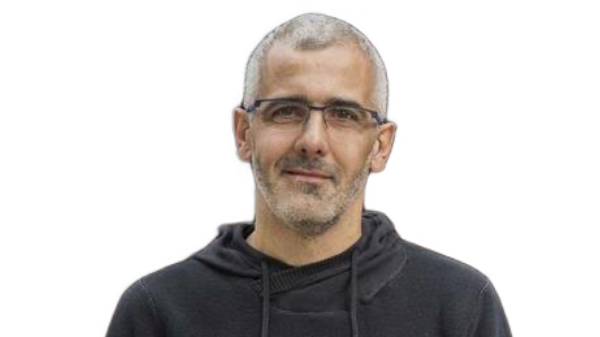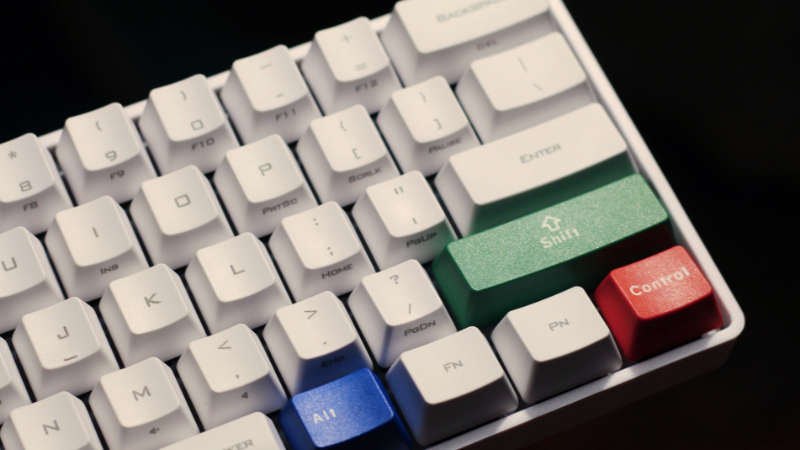Making sense of our connected world

Integrating gender and inclusivity in digital cultural policies: insights from Berlin and Barcelona
How is digital transformation shaping our cultural landscapes? The study featured in this blog post analyses how Berlin and Barcelona, as two leading European metropolises, are integrating digitalisation into their cultural policies. Particularly intriguing is how they address challenges of gender justice, inclusivity, and equality, and the diverse strategies and innovative practices they employ. Could Berlin’s initiatives to enhance the digital competencies of cultural professionals and Barcelona’s commitment to democratic values and gender equality serve as a blueprint for a new European cultural policy in the digital age?
The digital era in cultural policy: a new paradigm
As we embrace the digital era, its impact on cultural policies is undeniable. The research presented delves into a detailed analysis of how two prominent European cities, Berlin and Barcelona, integrate digitalisation into their cultural policies, particularly from a gender perspective. This exploration is not just about technology; it’s about how we as societies value and support culture in the digital age.
In the context of the current digital transformation, cultural policy has become a vital tool for ensuring that the benefits of digitalisation are fairly distributed. This investigation into Berlin and Barcelona’s strategies provides a blueprint for other cities grappling with similar challenges.
Berlin vs. Barcelona: contrasting approaches in cultural digitalisation
Berlin and Barcelona present distinct yet complementary strategies in their approach to digital platformisation in cultural public policies. Through stakeholder interviews conducted between July and October 2023, we gained insights into how these cities navigate the digital transformation of their cultural sectors.
Berlin’s approach, Gemeinsam Digital Berlin, led by the Senate Department, emphasises digital progress and inclusivity, focusing on enhancing digital skills among cultural practitioners. Meanwhile, Barcelona, through initiatives like the Barcelona Digital City Plan, promotes digital practices grounded in democratic values and gender equality. This complementary approach reflects the unique cultural and political landscapes of the two cities.
To see examples of different platforms and programmes in both cities, click here.
Berlin’s emphasis on digital progress and inclusivity
Berlin, under the guidance of the Senate Department, is dedicated to advancing digital skills among cultural practitioners through initiatives like the Förderprogramm Digitale Entwicklung im Kulturbereich. This program underscores the importance of open-source contributions and collaborative governance. It aims to empower recipients by providing practical knowledge and ensuring that project outcomes are openly accessible on platforms such as GitHub, under open licences. However, despite these initiatives, challenges remain, particularly in addressing the specific needs of women and ensuring consistent funding for minority cultural workers. The programs strive to promote digital consciousness and affinity among cultural actors, encouraging them to engage more deeply with digital tools and platforms.
To address these challenges, the Diversity Culture Arts initiative plays a crucial role within Berlin’s cultural strategy. This program is specifically designed to amplify the voices and enhance the visibility of underrepresented groups within the arts sector. By providing targeted support and resources, it seeks to bridge the digital divide that disproportionately affects minority and female cultural practitioners. The initiative not only facilitates access to digital tools and training but also fosters an inclusive environment where diverse cultural expressions and innovations are celebrated.
Barcelona’s democratic values and gender equality
Barcelona’s approach, including the Barcelona Digital City Plan, promotes digital practices grounded in democratic values. The city’s initiative and policies foster an environment conducive to innovation. On gender equality, Barcelona integrates considerations in public procurement, legal compliance, equal pay, and work-life balance, reflecting a stronger focus under left-wing administrations.
Barcelona’s commitment to democratic values and gender equality is evident in its holistic approach to cultural policy. Although invoking the civil society is always challenging, the role of BCNFemTech is crucial. This initiative, part of the broader efforts to bridge the digital gender divide, actively works to increase women’s participation in the ICT sector through targeted training programs. BCNFemTech offers comprehensive training sessions, which have empowered numerous women in vulnerable situations by equipping them with essential tech skills, thereby promoting their employment in the expanding tech industry.
Innovative models and practices in Berlin and Barcelona
The innovative practices in both Berlin and Barcelona are particularly noteworthy due to their focus on leveraging digital tools to enhance cultural and urban development, with a strong emphasis on inclusivity.
Berlin’s Förderprogramm Digitale Entwicklung im Kulturbereich is innovative for several reasons:
- Empowerment through open source: emphasizing the use of open-source platforms, which fosters a collaborative environment where resources are freely available, encouraging a broader participation in cultural developments. This not only enhances digital literacy among cultural practitioners but also promotes transparency and cooperation across the sector.
- Focus on practical knowledge: supporting projects that provide practical digital skills and knowledge, thereby enabling cultural workers to adapt to digital transformations effectively. By emphasizing practical outcomes, it ensures that participants can implement and benefit from digital advancements directly.
- Inclusive and sustainable cultural development: integrating digital tools and open-source resources into cultural work, the program supports sustainable cultural development that is accessible to a wider audience, including underrepresented groups.
Barcelona’s approach, framed by the Barcelona Digital City Plan and Cultura Viva, reflects innovation through:
- Cultural activation and community involvement: Cultura Viva advocates for participatory governance and active community involvement in cultural programs. This initiative promotes cultural democracy by supporting local networks, community centres, and collective projects that transform the cultural fabric of the city.
- Digital integration in cultural policy: The Barcelona Digital City Plan integrates digital technology into the cultural sector, enhancing access to cultural content and participation through digital platforms. This approach facilitates broader community engagement and enriches Barcelona’s cultural offerings.
- Focus on inclusivity and social justice: Both programs emphasize social justice and inclusivity, particularly in addressing the digital divide and enhancing gender equality within the cultural and technological sectors.
Conclusion: the path forward in cultural policy and digitalisation
In sum, this comparative analysis of Berlin and Barcelona offers valuable insights into the integration of digitalisation in cultural policies. As we look forward, the lessons learned from these cities can guide future research and development in the field, paving the way for more inclusive and equitable cultural landscapes. The experiences of Berlin and Barcelona highlight the potential of digitalisation to transform cultural policy. However, they also underscore the importance of ensuring that this transformation is guided by principles of inclusivity and social justice.
In order to continue this work, this project will reach a new milestone at the re:publica conference in Berlin, scheduled for May 27-29, 2024. The conference will focus on the impact of AI on music creation and the pivotal role of public policies. An interdisciplinary workshop to be held at HIIG on May 30 will provide a platform for Ricard Espelt, Enric Senabre Hidalgo and Marcantoni Malagarriga to showcase their co-creation editorial work within the digital humanities initiative Pliegos.net. By merging open knowledge, collaborative writing, and traditional printing methods, this proposal revitalises the chapbook’s historical tradition, integrating it with modern participatory practices. At the re:publica conference, discussions will explore how artificial intelligence influences music creation and examine how public policies can be adapted to effectively nurture cultural innovation.
To know more about…
1) Inspirational programmes to promote cultural digitalisation and inclusion
- Keychange: A global initiative backed by Creative Europe aiming for gender equality in the music industry through collective efforts from partners across 12 countries.
- Förderprogramm Digitale Entwicklung im Kulturbereich: A Berlin Senate program enhancing digital skills in the cultural sector, focusing on self-empowerment and open-source project outcomes.
- Fairstage: A Berlin initiative by DAC, ensemble-netzwerk, and LAFT to address misconduct in cultural institutions and foster structural changes for a respectful environment.
- Goldrausch Kuenstlerinnenprojekt: A postgraduate programme for female artists in Berlin, offering career development support and emphasising women’s visibility and rights in the arts.
- 360° Bundeskulturstiftung: A Federal Cultural Foundation programme aiming to integrate immigration and cultural diversity into the cultural sector with €17.3 million funding for 39 institutions.
- Prototype Fund: A BMBF and Open Knowledge Foundation Germany initiative supporting freelance tech innovators in developing open-source applications for public good.
- Cultura Viva: A Barcelona-based programme fostering cultural participation, co-production, and a feminist perspective in collaboration with the Institut de Cultura and city council departments.
- MatchImpulsa: A Barcelona City Council initiative promoting digital platformisation within the Social Economy, focusing on sustainable, inclusive economic models from a gender-inclusive perspective.
2) Inspirational organisations focused on promoting inclusivity and gender equality in the cultural sector
- Diversity Culture Arts: A Berlin-based office established by the Senate Department for Culture and Europe in 2017 to enhance cultural diversity through consultancy, training, and support for artists with limited access.
- Algorithm Watch: A visionary organisation advocating for the ethical use of algorithmic systems to ensure they benefit humanity and foster more just, democratic, and sustainable societies.
- Themis: An independent organisation offering a safe space for addressing sexual harassment and violence in the culture and media sectors, providing legal counsel, psychological advice, and mediation services.
- Femnoise: An international non-profit launched in 2017 to amplify the roles of women and dissidents in culture, education, technology, and creative industries through technological initiatives and global networking.
- Bitlab: A non-profit organisation in Barcelona focused on bridging culture and society through innovative projects, fostering community participation and collaboration across various sectors.
- HAU Hebbel am Ufer: A leading contemporary arts venue in Berlin that integrates theatre, dance, music, and visual art, known for its innovative productions and commitment to community engagement.
- Chaos Computer Club: Europe’s largest hacker association, offering insights on technical and societal issues like privacy and hacktivism, and providing a wide range of services and infrastructure for the hacker community.
- Open Knowledge Foundation: Dedicated to creating accessible and user-friendly digital tools, the Foundation emphasises digital literacy and open knowledge to shape a free, sustainable, and inclusive future.
3) Inspirational platforms to promote inclusivity and gender equality in the cultural sector
- Decidim: An open-source digital platform for citizen participation, transformed in 2017 into a versatile tool for any organisation, emphasising democratic integrity and community contributions, with a focus on increasing female participation in coding.
- ImpulsorESS: Decidim.Cultura: A project leveraging the Decidim platform to create a collaborative cultural network for the Social and Solidarity Economy (SSE), integrating open-source technologies for resource sharing and collective fundraising.
- La Guixeta: A digital platform for Catalan audiovisual and cultural content, promoting ethical sharing, production, and consumption through community and consumer cooperativism, based on Peertube and integrated with Goteo.org for crowdfunding.
- Vielfalt entscheidet – Equality Data: A project by Citizens for Europe focusing on enhancing diversity in leadership and promoting inclusivity, using extensive research and unique survey tools to address discrimination and suggest reforms across various sectors.
4) Inspirational legislative initiatives to ensure gender equality in the cultural field (and beyond)
- Berliner Landesgleichstellungsgesetz: Berlin’s state law for gender equality in state services, aiming to increase the proportion of women in leadership positions through various measures and mandates.
- Allgemeines Gleichbehandlungsgesetz (AGG): Germany’s main anti-discrimination law, enacted in 2006, to prevent discrimination on various grounds in both public and private sectors.
- Berliner Landesantidiskriminierungsgesetz (LADG): A Berlin-specific anti-discrimination law enacted in 2020, protecting individuals from discrimination by public authorities on various grounds and shifting the burden of proof in discrimination cases.
5) Inspirational cultural networks with gender perspective
- Reset! Network: A European initiative aiming to unify independent cultural, media, and creative entities across 25 countries, focusing on pluralism, diversity, equality, and sustainability.
- Female:pressure: An online database and network initiated by Vienna’s Electric Indigo in 1998, advocating for women, non-binary, transgender, and gender-diverse individuals in electronic music and visual arts.
- OpenGLAM: An initiative promoting open access and collaboration in cultural heritage, urging galleries, libraries, archives, and museums to adopt open-access policies for their collections.
- BCNFemTech: A Barcelona-based women’s network tackling the digital gender divide, advocating for gender equity in technology and supporting women-led tech initiatives through various projects and awards.
Read the full report (29-pages PDF) This publication is based upon work from COST Action P-WILL, CA21118, supported by COST (European Cooperation in Science and Technology).
This post represents the view of the author and does not necessarily represent the view of the institute itself. For more information about the topics of these articles and associated research projects, please contact info@hiig.de.

You will receive our latest blog articles once a month in a newsletter.
Data governance
Polished yet impersonal: The unintended consequences of writing your emails with AI
AI-written emails can save workers time and improve clarity – but are we losing connection, nuance, and communication skills in the process?
AI at the microphone: The voice of the future?
From synthesising voices and generating entire episodes, AI is transforming digital audio. Explore the opportunities and challenges of AI at the microphone.
Do Community Notes have a party preference?
This article explores whether Community Notes effectively combat disinformation or mirror political biases, analysing distribution and rating patterns.




